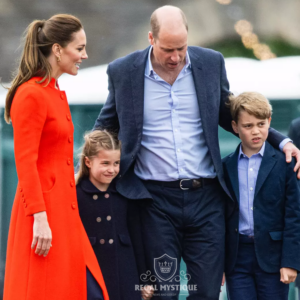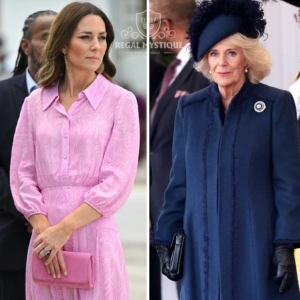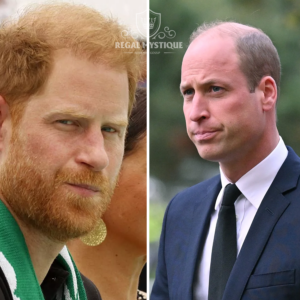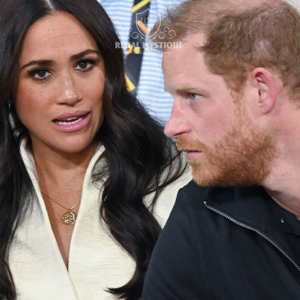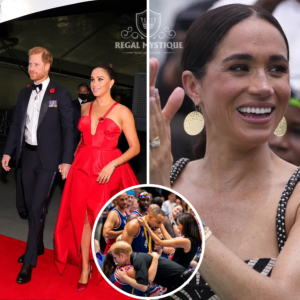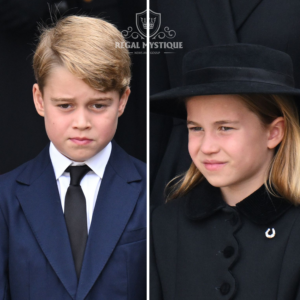When WNBA star Brittney Griner arrived at her county cell in Russia in 2022, despair washed over her.
“I did not feel like a human at that point, and just everything was setting in on the unknown,” she told NPR. “I just sat there and thought about ending it – just came up with a plan on how I could do it.”
Griner had been on her way to play a final season with Russia’s EuroLeague team when two vape cartridges, with traces of doctor-prescribed cannabis oil, were found in her luggage while going through customs at a Moscow airport. Months later, she was convicted on drug charges and sentenced to nine years in a Russian penal colony.
Between her pre-trial detention and sentence, she ended up being held for 10 months before a prisoner swap with a notorious Russian arms dealer secured her freedom.
Griner has now written a new memoir, Coming Home, in which she recounts being mentally and physically humiliated by guards, of the constant pain from squeezing her 6-foot-9 frame into cramped beds and cage, and cutting her locs because it was so cold that her hair literally froze.

Griner being escorted by police before a hearing during her trial in Khimki, outside Moscow in August 2022.
Natalia Kolesnikova/AFP via Getty Images
She spoke with All Things Considered host Juana Summers about her experience, and the conversation begins with Griner describing what went through her mind when she was first detained.
This interview has been lightly edited for length and clarity.
Interview highlights
Brittney Griner: Oh my God, it was kind of like one of those moments people talk about before a crash or something, and you see your life flash [before your eyes], or it’s just like the breath is completely took out of your lungs. That’s the exact feeling. And I literally started contemplating everything that could go wrong.
Juana Summers: That was the start of a story for you that you detail in this book. And for those that may be hearing these details, this part of your story, for the first time, can you describe some of the conditions and situations that you faced, first in detention then during your trial, and later in the labor camp?
Griner: The detention center, I’ll never forget the first day walking into quarantine and literally seeing some scissors and a pretty nice-sized knife just sitting on the table. And I’m like, “Well, this is already different.” One person barely spoke English a little bit. So it was a lot of pointing and just unknown. Not knowing if my lawyer knows where I’m at, or if anyone knows where I’m at. I basically had to drink this milky sediment water that came out of the sink. Just the isolation, the most filthiest place you can think of times 10. And on top of the blistering cold and having to stand outside, it was very harsh.
Summers: You wrote that, at one point, you had thoughts of ending your life. How often did you feel like that?
Griner: Definitely when I got put in the county cell and I had literally nothing – no toothbrush, no soap, no necessities. Nothing. I literally had two shirts, sweats and a hoodie. And my shoes on my feet. And I had to take a shirt and rip it up into different pieces to use to clean myself, wash off with. It was the most degrading and just flat-out dirtiest I’ve ever felt in my whole entire life. I did not feel like a human at that point. And everything was setting in on the unknown. I didn’t know anything at that point. Like, it was very early on. And I just sat there and thought about ending it – just came up with a plan on how I could do it. But, you know, after a couple of days and just thinking about it, you know, “What is my mom gonna say? What is my dad, my brother, my sister, my wife…” I couldn’t do that to them. I’m already locked up abroad. I can’t add any more stress to them like that.
If you or someone you know may be considering suicide, contact the 988 Suicide & Crisis Lifeline by dialing 9-8-8, or the Crisis Text Line by texting HOME to 741741.
Summers: You write about your time in Russian detention and prison. But you also talked so much about the ways in which you had already been denied certain privileges and freedoms because of your appearance, because you’re a Black queer woman. And I can’t help but see some clear parallels between those two situations.

Brittney Griner looks on during an NCAA semifinal game in April.
Steph Chambers/Getty Images
Griner: I’ve definitely seen the other side of being discriminated against just being part of the LGBT community and being a Black athlete and being told that I need to shut up and play, I’m just an athlete, I just need to be grateful. The pay inequity that we have in between our league and the men’s league — quite frankly, that’s why I was even in Russia in the first place, to make up that pay gap that we have here, unfortunately.
Summers: I want to ask you about that pay gap. I mean, we’re in this moment that is an incredible celebration of women’s sports, of women’s basketball due to some of the superstars in the college game who recently were drafted – people like Caitlin Clark and Angel Reese – and yet, this pay gap that you’ve discussed prominently still persists. How do you square those things? How are you feeling about this moment for your sport?
Griner: I mean, I’m feeling hopeful for sure. I mean, just this last March Madness, the ratings definitely show that people are tuning in to the women’s game. We’ve come a long way. And we’re starting to get into those rooms and being able to advocate for ourselves. And with Caitlin Clark, Angel Reese, even the younger ones coming up, Paige [Bueckers] and JuJu [Watkins], it’s just going to keep getting better. We’re just going to keep growing and keep pushing the envelope.
Summers: There is this moment that you write about in the book that I’m hoping is a story you can tell us. It’s when you and your wife Cherelle were reunited on the tarmac in San Antonio, after you spent 293 days separated from one another. What was that like?
Griner: Breathtaking. It just reminded me of the first time I ever saw her on campus. It was just, I didn’t think I was going to see her again anytime soon. I thought it was going to be a good nine years before I saw my person. When I saw her through the window, I immediately broke down. I couldn’t get off that plane quick enough. I’ll never forget that. It was just hugging, hugging, hugging and just holding each other crying.
Brittney and Cherelle Griner arrive for the White House Correspondents’ Association dinner in April 2023.
Stefani Reynolds/AFP via Getty Images
Summers: After what you’ve been through, how do you cope when you hear people suggest that you don’t deserve to be home with your wife, with your family, to be back with your teammates?
Griner: It hurts. It definitely hurts. I mean, I’m human, so it hurts a little bit. But at the end of the day, everyone’s entitled to their own opinion. And I can’t let it affect me. But I will say this, if it was up to me, and it was in my hands, everybody that was in Russia would have come back. And I remember getting on that plane when I did get the chance to come back, and I was really hopeful that Paul was on that plane with me.
Summers: You’re talking about Paul Whelan, who’s among the other Americans who have not been able to return home yet. Throughout the book, you wrote so movingly about the guilt that you felt and about the fact that something that was an honest mistake, as you’ve said, led to months away from your wife and family, months under the conditions that you’ve been telling us about. And you also wrote about how, despite getting forgiveness from your family, from your wife, it was hard to let go of that guilt. How did you get to a place where you felt able to let that go and to forgive yourself, if you have?
Griner: I mean, I’m feeling hopeful for sure. I mean, just this last March Madness, the ratings definitely show that people are tuning in to the women’s game. We’ve come a long way. And we’re starting to get into those rooms and being able to advocate for ourselves. And with Caitlin Clark, Angel Reese, even the younger ones coming up, Paige [Bueckers] and JuJu [Watkins], it’s just going to keep getting better. We’re just going to keep growing and keep pushing the envelope.
Summers: There is this moment that you write about in the book that I’m hoping is a story you can tell us. It’s when you and your wife Cherelle were reunited on the tarmac in San Antonio, after you spent 293 days separated from one another. What was that like?
Griner: Breathtaking. It just reminded me of the first time I ever saw her on campus. It was just, I didn’t think I was going to see her again anytime soon. I thought it was going to be a good nine years before I saw my person. When I saw her through the window, I immediately broke down. I couldn’t get off that plane quick enough. I’ll never forget that. It was just hugging, hugging, hugging and just holding each other crying.

Brittney and Cherelle Griner arrive for the White House Correspondents’ Association dinner in April 2023.
Stefani Reynolds/AFP via Getty Images
Summers: After what you’ve been through, how do you cope when you hear people suggest that you don’t deserve to be home with your wife, with your family, to be back with your teammates?
Griner: It hurts. It definitely hurts. I mean, I’m human, so it hurts a little bit. But at the end of the day, everyone’s entitled to their own opinion. And I can’t let it affect me. But I will say this, if it was up to me, and it was in my hands, everybody that was in Russia would have come back. And I remember getting on that plane when I did get the chance to come back, and I was really hopeful that Paul was on that plane with me.
Summers: You’re talking about Paul Whelan, who’s among the other Americans who have not been able to return home yet. Throughout the book, you wrote so movingly about the guilt that you felt and about the fact that something that was an honest mistake, as you’ve said, led to months away from your wife and family, months under the conditions that you’ve been telling us about. And you also wrote about how, despite getting forgiveness from your family, from your wife, it was hard to let go of that guilt. How did you get to a place where you felt able to let that go and to forgive yourself, if you have?
News
Kate Middleton’s ‘heartbreak’ over William’s decision about their family’s future……
William, 41, and his brother Prince Harry, 39, previously attended Eton College, which broke the tradition of the older generation, including his dad the King, of attending a boarding school in Edinburgh Kate Middleton is “heartbroken” after an “argument” with Prince William over…
Shocking Claim: Queen Camilla & Kate Middleton Rumors Confirmed – Did She Really Do This?
Queen Camilla has become a very popular royal family member. When she and Prince Charles began dating and later married, the public was still outraged with her as she had been Charles’s mistress during his marriage to Princess Diana. However,…
Prince William Views Prince Harry as ‘Background Noise’ Amid Rift Over Explosive Memoir
Prince William is said to consider his brother Prince Harry as “background noise” after the younger brother released an explosive memoir. Prince William is reportedly “keeping his family away” from his brother due to a long-running rift between the pair. (Image:…
Prince Harry and Meghan Markle ‘insensitive’ for business ventures amid family turmoil, says royal expert
File image of Britain’s Prince Harry and Meghan, Duchess of Sussex attending the Royal Salute Polo Challenge charity match in Wellington, Florida on April 12(Reuters / Marco Bello) Prince Harry and Meghan Markle are facing backlash for their recent business…
Meghan Markle accused of treating California life like ‘prom event’ by ‘setting up’ shows to attend with Prince Harry
A royal expert has accused Meghan Markle of treating her life in Montecito, California like a “prom event,” and Prince Harry like “the prom king.” A royal expert has accused Meghan Markle of treating her life in Montecito, California like a “prom…
Princess Charlotte’s Boss Moment With Prince George Caught on Camera
Princess Charlotte telling Prince George “you need to bow” went viral on TikTok as she was praised for being “such a boss.” The young royal, nine, was seen giving her older brother, who turns 11 this month, some pointed advice on the day of Queen…
End of content
No more pages to load
